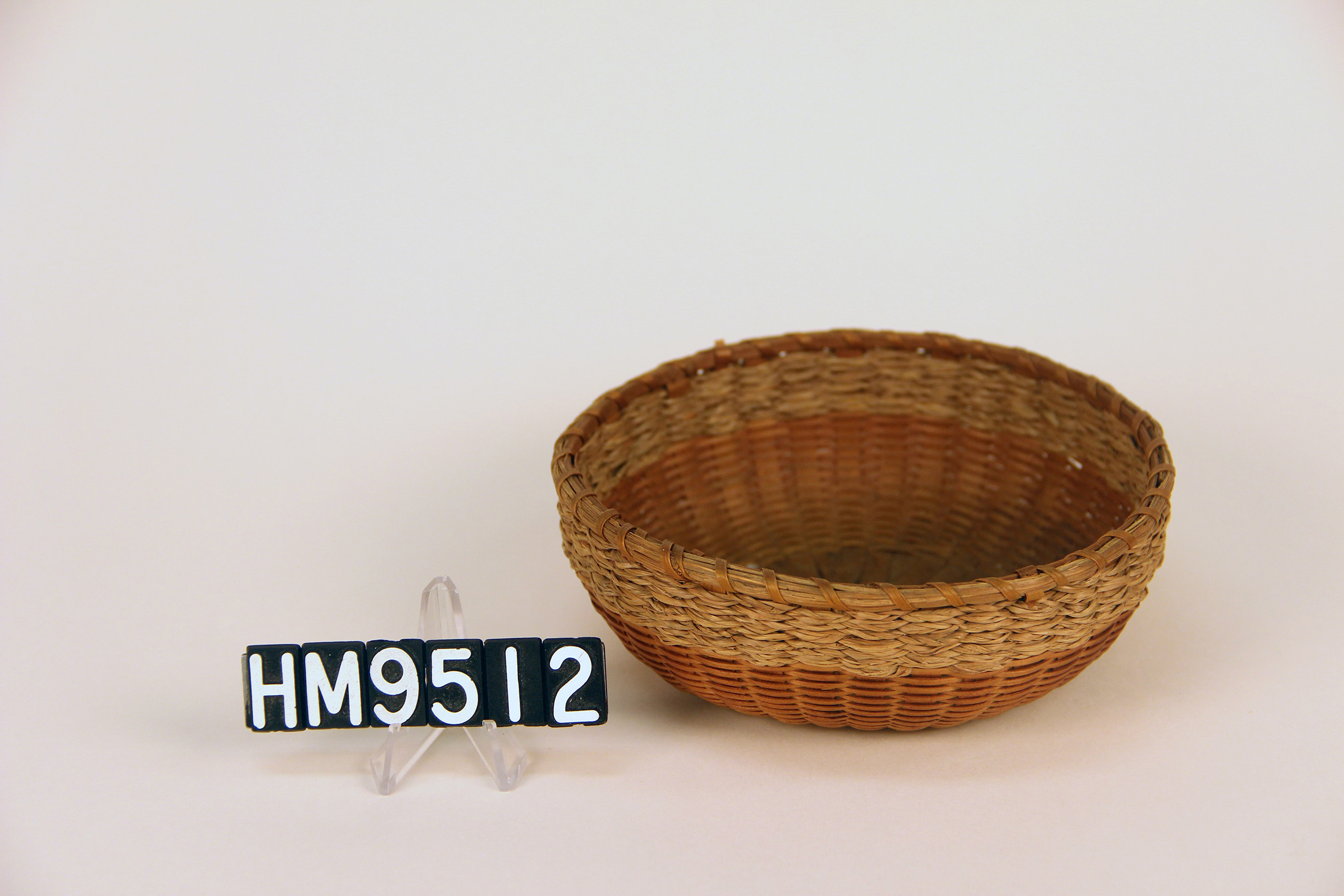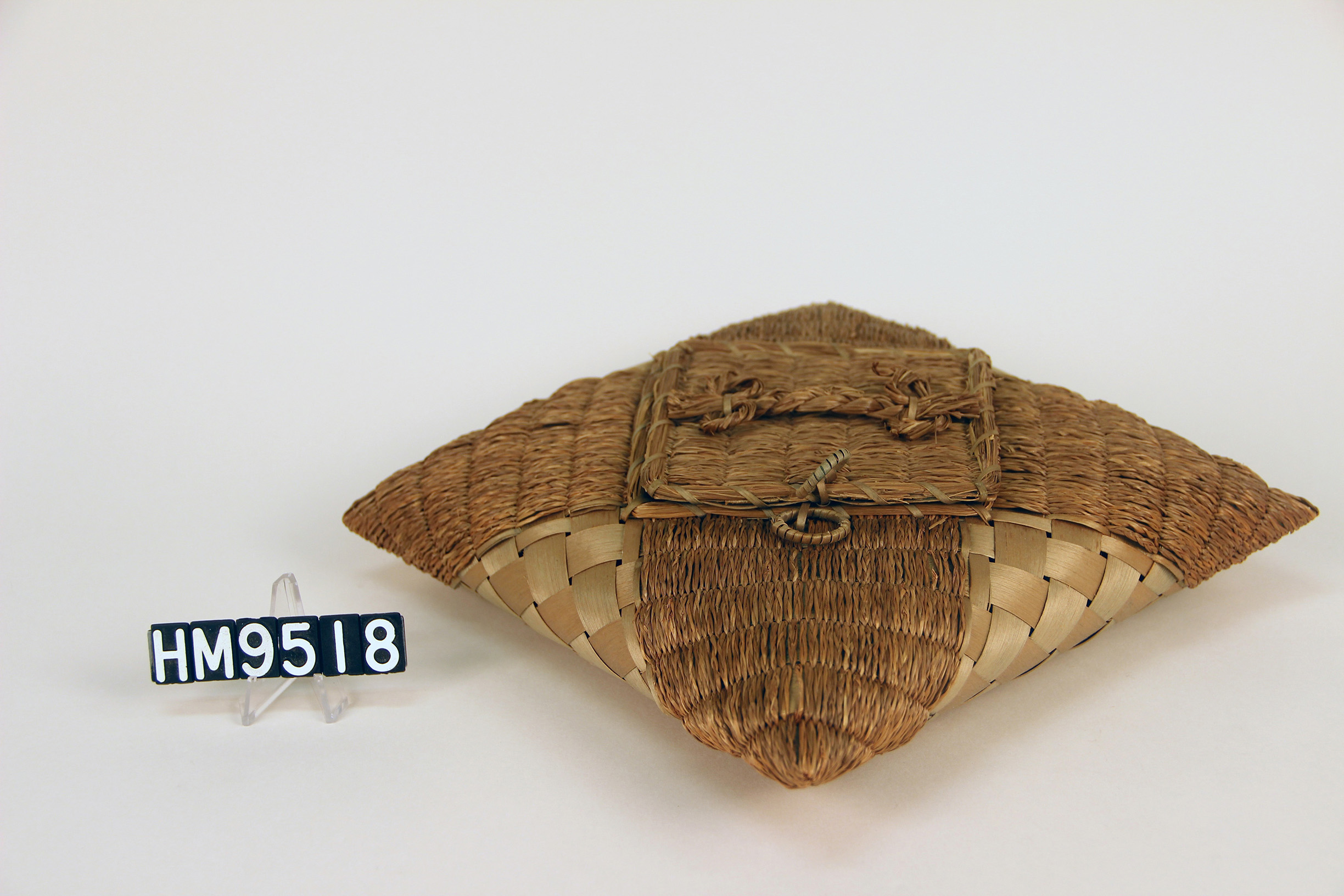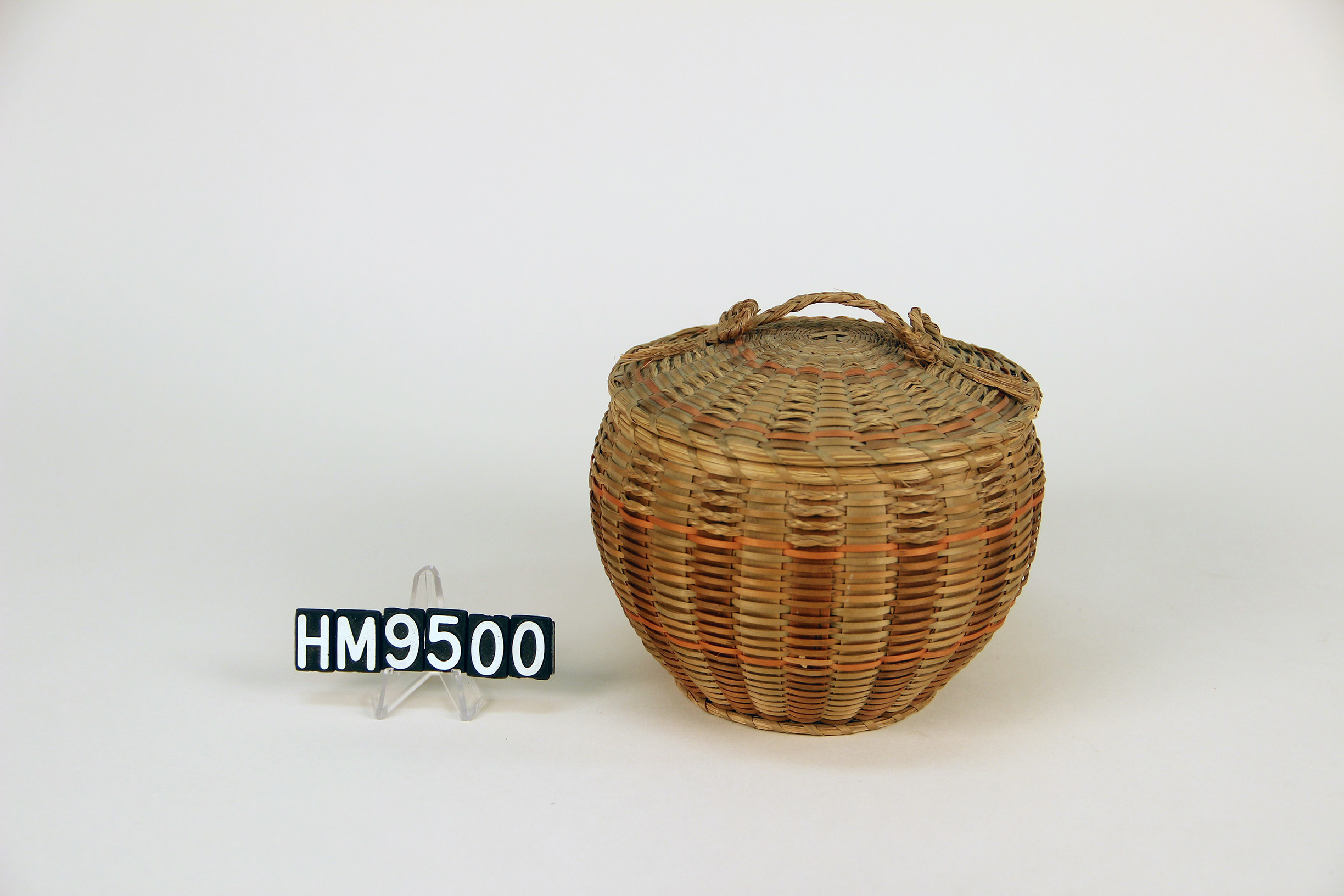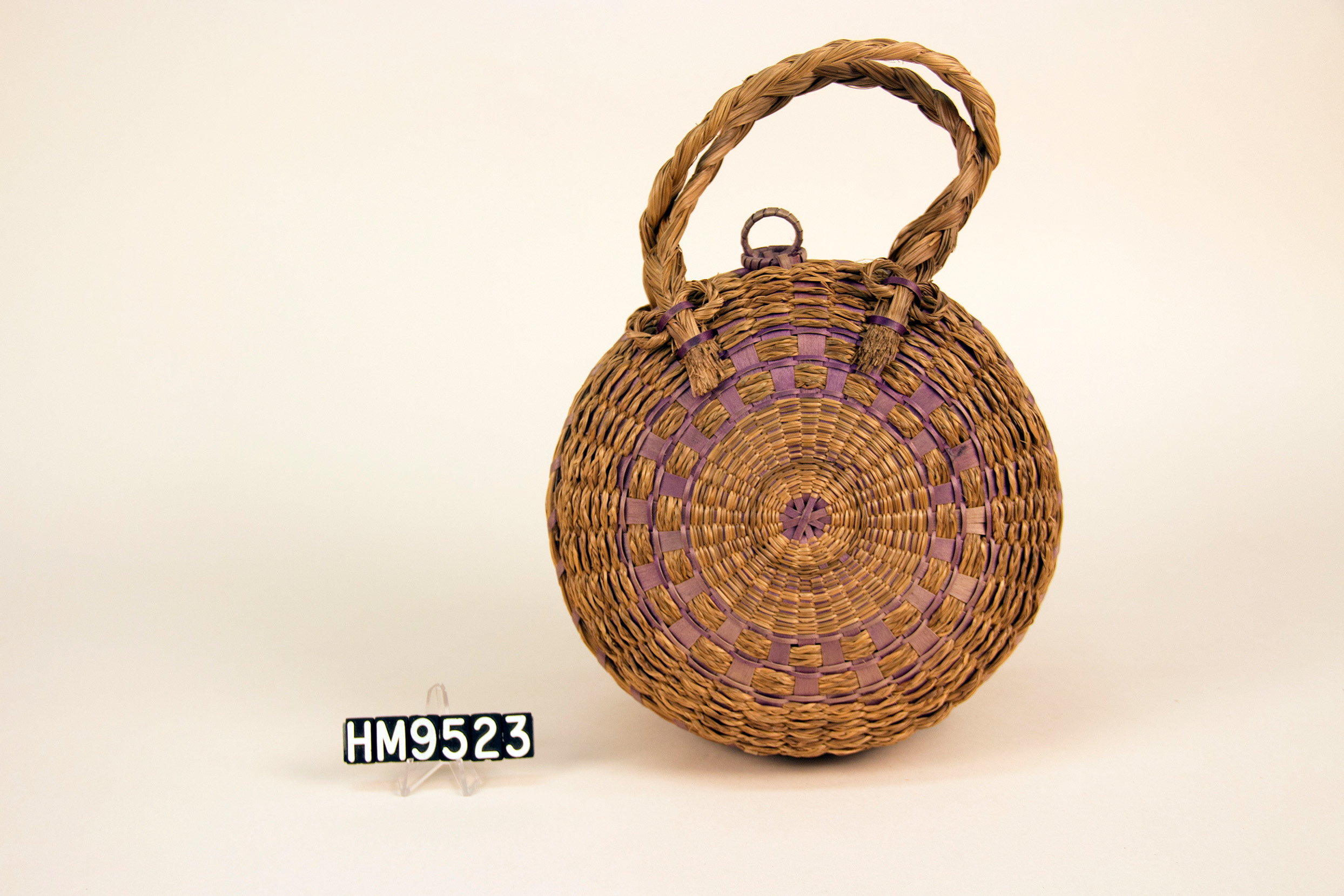A Gift of Beauty

Robert Anderson spent years carefully and lovingly building his collection of Wabanaki baskets, tools, and blocks, many of which came from his own Penobscot basketmaking family. His collection is unique in that many of the baskets and tools are traceable to the person or family that wove the basket or used the tools. Basketmaking was a method of survival for many Wabanaki families who made and sold baskets to be used in homes, fields, and industries, their work largely anonymous as it was rarely signed or dated. Historians and anthropologists of the past largely ignored the importance of basketmaking in Wabanaki communities. Basketmaking continues to be important and a source of pride in contemporary Wabanaki cultures and communities. Robert Anderson leaves a gift of beauty that will inspire current and future generations of Penobscot and Wabanaki basketmakers for many years to come.
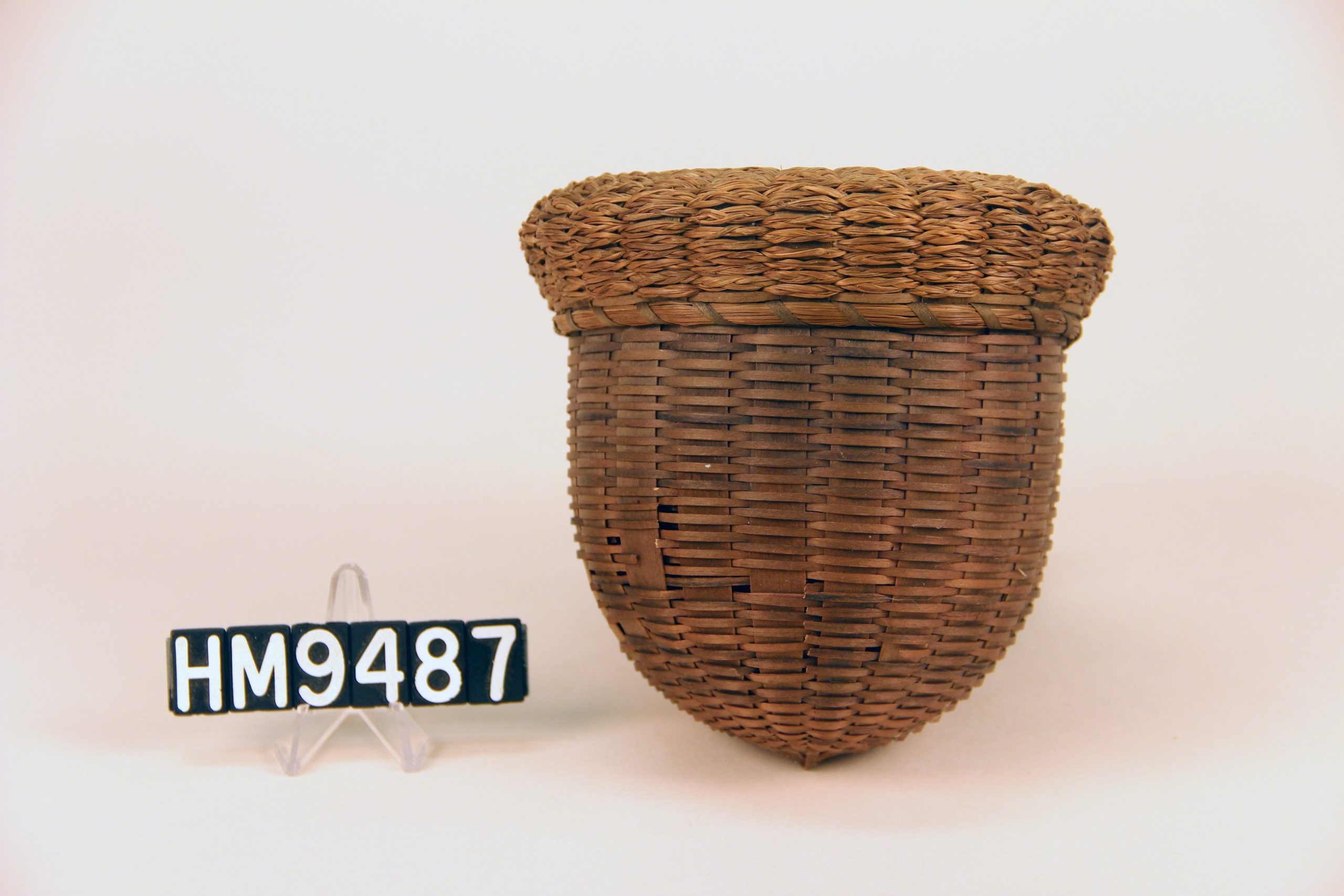
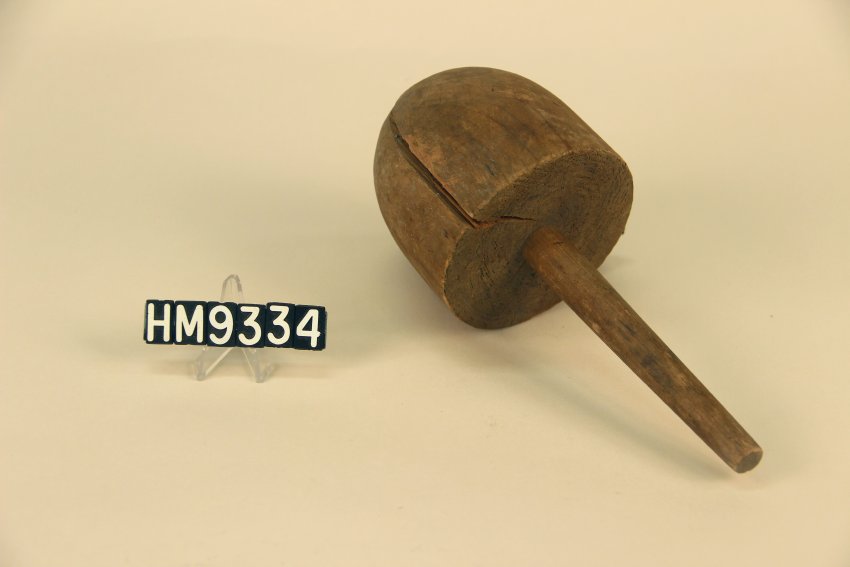
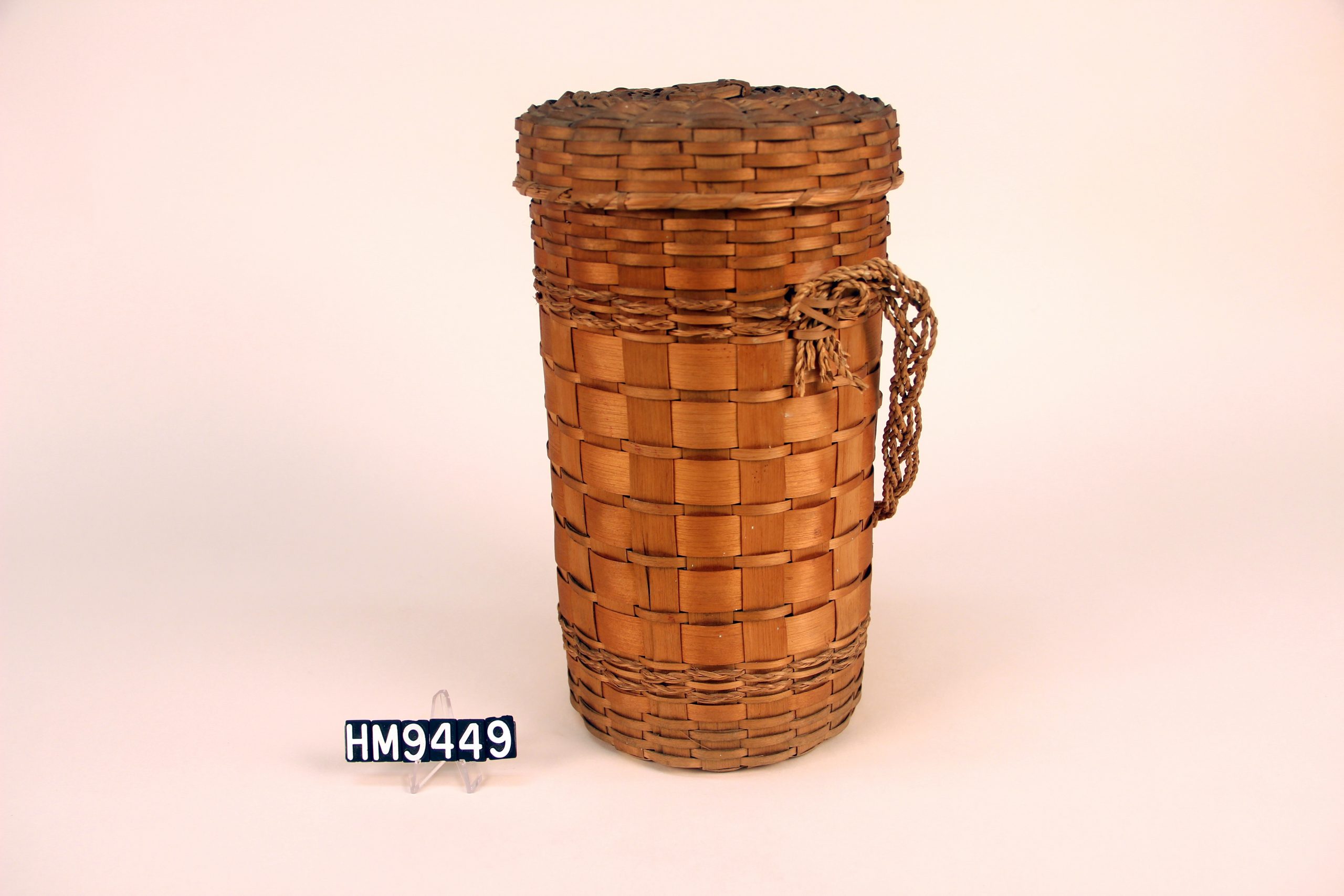

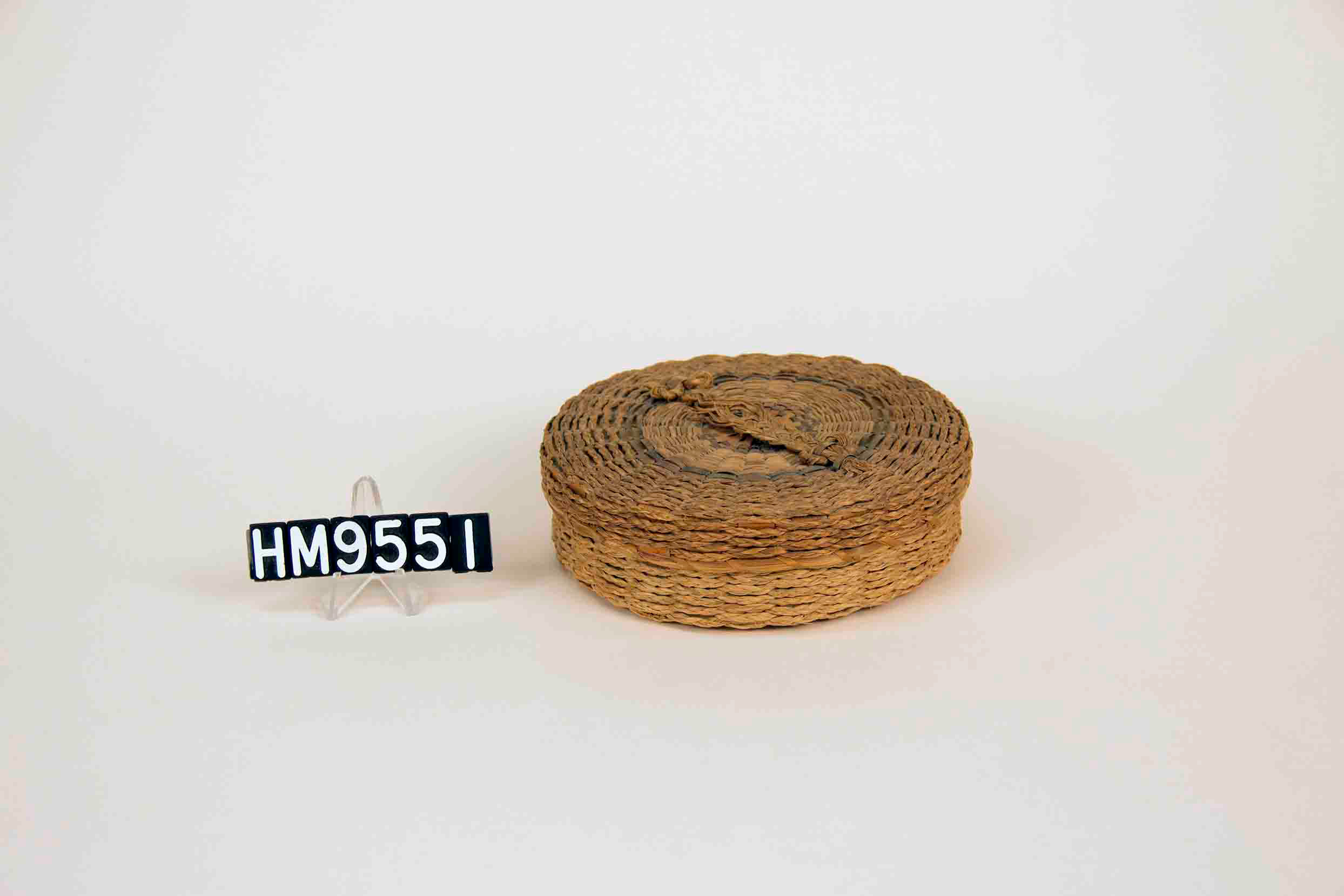
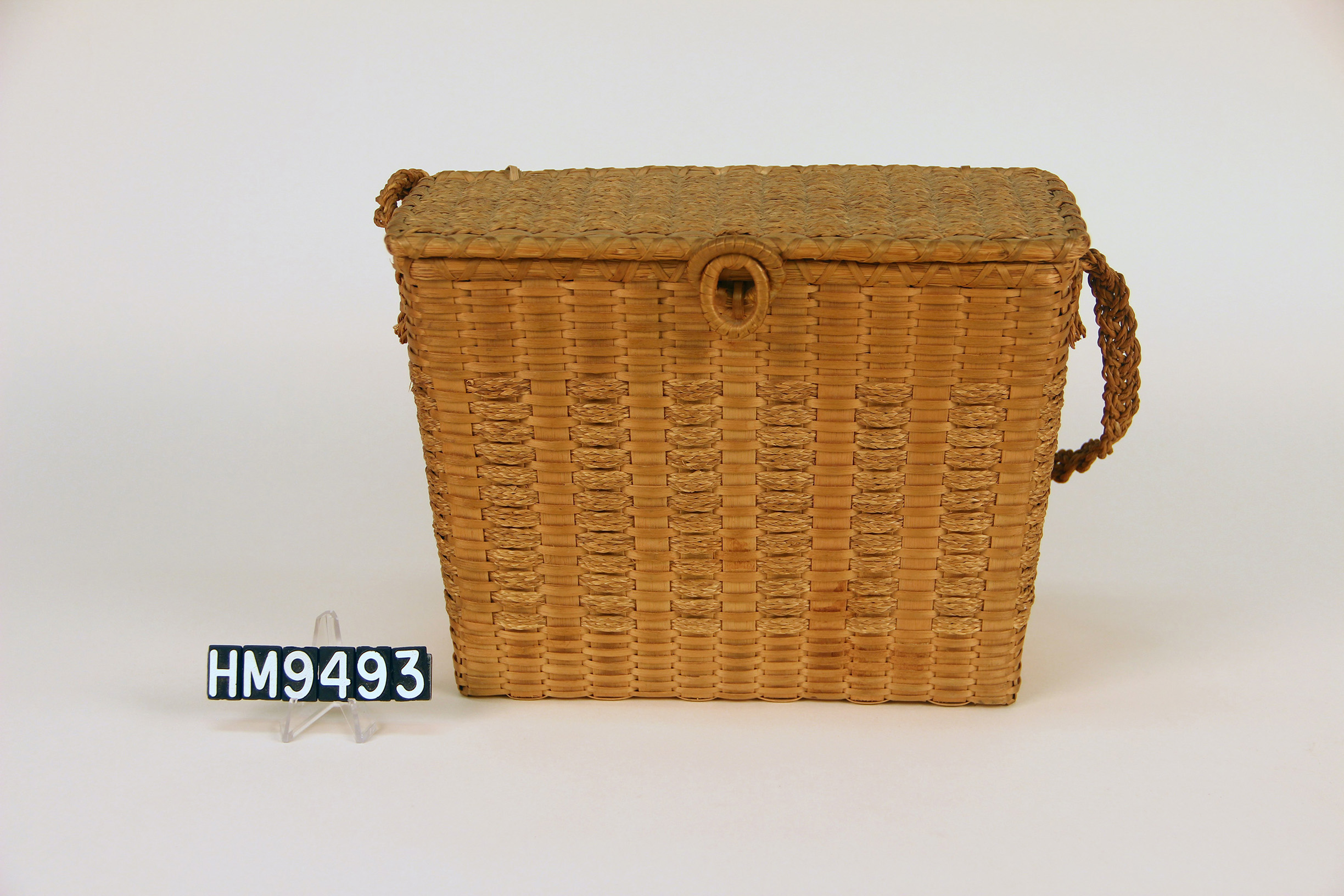
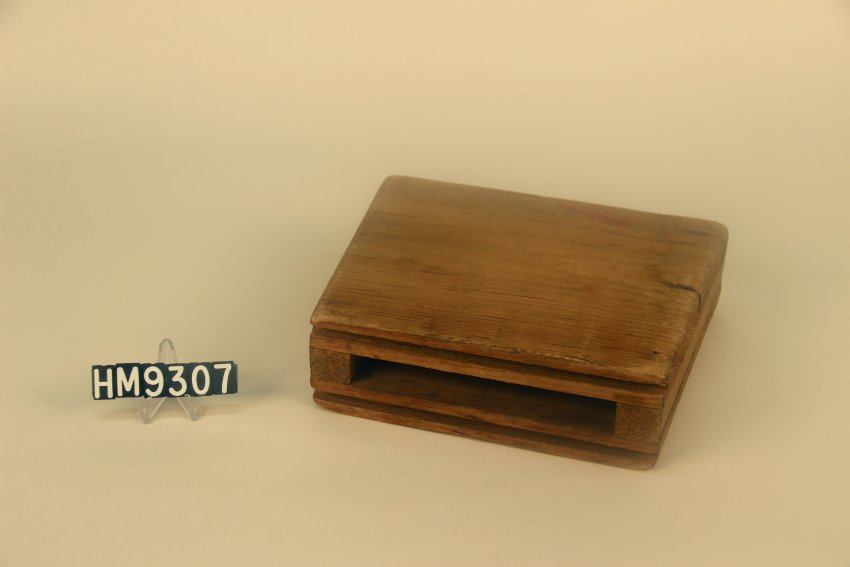
Shopper Block
c.1940 – 1970
This block bears the names “Margarette” and “Watty,” Lucy Poolaw.
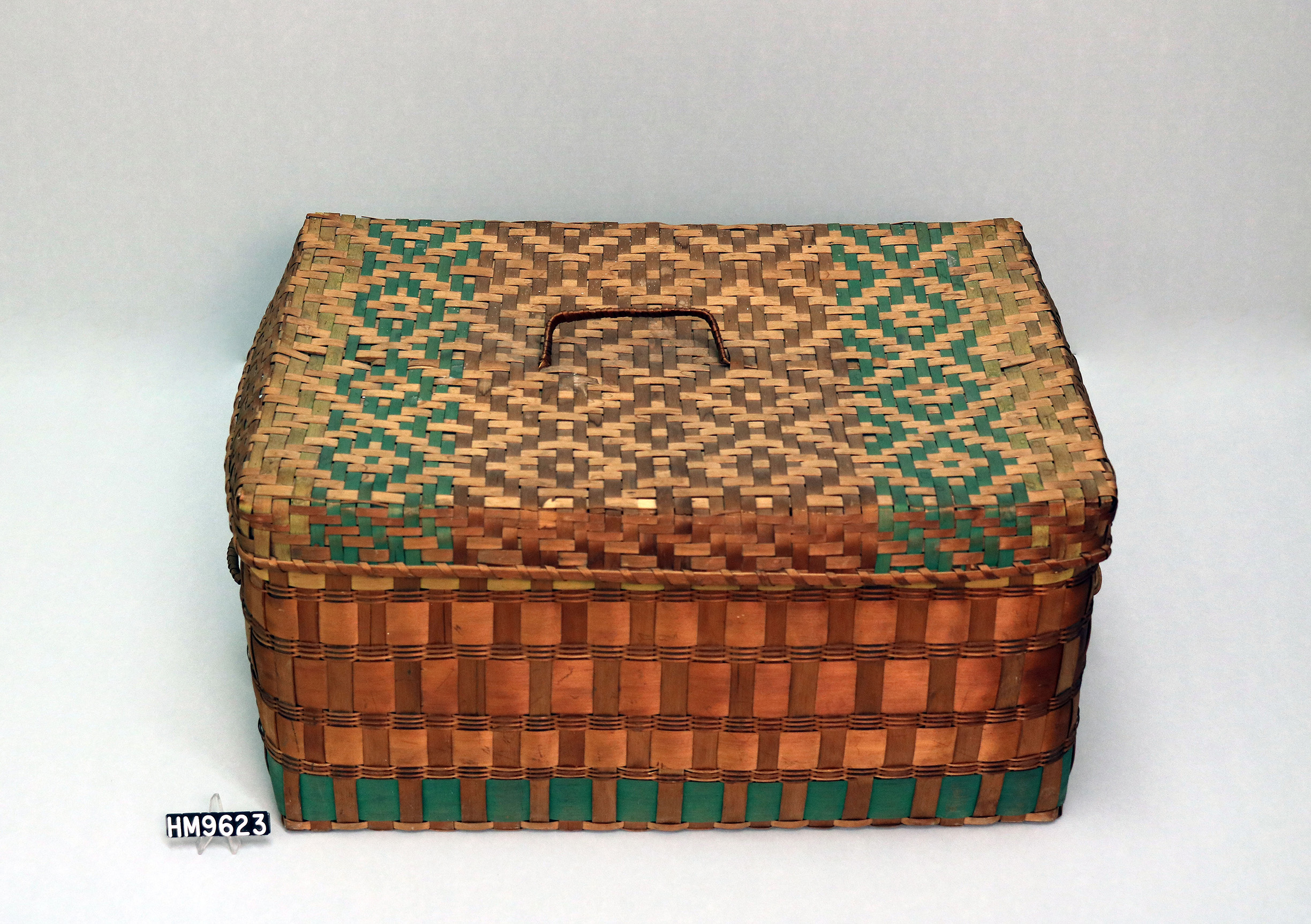
Trunk
c.1880
This traveling trunk features a twill weave and represents a weaving style that is not commonly represented in collections dating to this time period.
